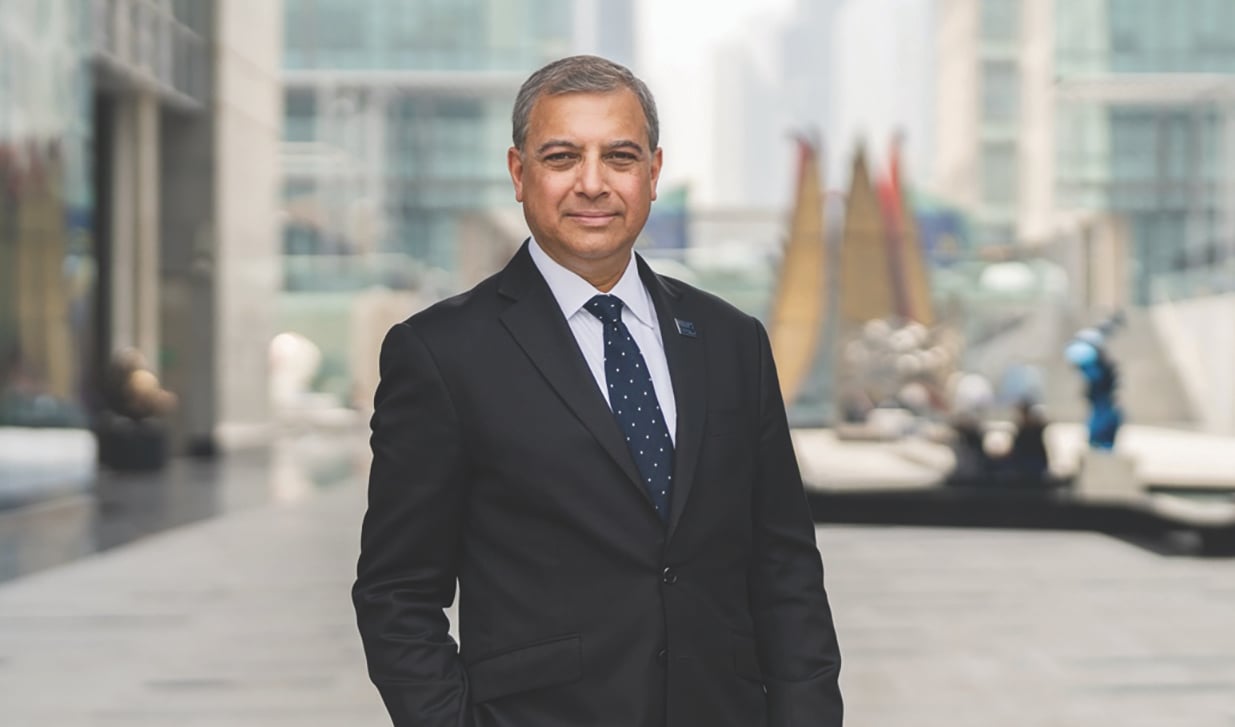
As we step into 2024, an intriguing evolution unfolds within the marketing landscape of the Middle East and North Africa (MENA) region, placing a special emphasis on Generation Z (Gen Z). This demographic holds an increasingly pivotal role to brands and marketers due to their burgeoning influence and distinct characteristics.
Growing up in a digital and hyper-connected world, Gen Z’s preferences and behaviours offer fresh insights and challenges. In my academic role and interactions with future leaders at Georgetown University, I am inspired by the principle of ‘always growing’.
This ethos resonates profoundly in the vibrant and dynamic context of the MENA region, where we navigate swiftly changing marketing trends increasingly influenced by Gen Z’s unique perspective.
SUSTAINABILITY AT THE FOREFRONT
A pivotal moment that underscored the importance of sustainability in consumer preferences was the recently concluded COP28 summit in Dubai. With business leaders and youth in attendance, the summit emphasised environmental responsibility, which resonates deeply with Gen Z’s values.
Notably, 78 per cent of MENA Gen Z consumers believe that companies must behave ethically and in line with community expectations. This generation’s heightened awareness of sustainability issues calls for brands to adopt eco-conscious practices and promote ethical consumption.
TRANSFORMING GEN Z ENGAGEMENT
AI-driven personalisation in marketing strongly appeals to Gen Z due to its seamless customisation based on individual preferences and behaviours. This digitally native demographic highly values authenticity, individuality and convenience, finding AI-powered systems leveraging their online activities appealing.
Additionally, when used transparently and responsibly, AI-driven personalisation aligns with Gen Z’s ethical concerns, fostering trust and positively influencing brand perception.
Overall, AI-driven personalisation’s capacity to deliver relevant, efficient, and customised experiences caters precisely to a generation with an attention span as short as eight seconds, making it a compelling strategy to engage and connect with this demographic.
HOW ‘BUY NOW, PAY LATER’ IS RESHAPING GEN Z’S SPENDING HABITS
The impact of financial services such as ‘Buy Now, Pay Later’ (BNPL) cannot be overlooked. Platforms including Tabby and Tamara are reshaping Gen Z’s shopping habits by allowing them to split expenses across multiple payments, providing a flexible and cost-effective substitute to traditional credit.
Its attractiveness stems from its ease and transparency, catering to the financial preferences of a generation that values ease and autonomy in managing their expenses. This trend signifies a broader shift in consumer finance, showcasing the innovative evolution within the business landscape.
REDEFINING LUXURY CONSUMPTION IN THE MIDDLE EAST
The Middle East’s luxury goods market, notably propelled by the UAE and Saudi Arabia, currently valued at $15.85 billion and projected to double by 2030, represents a significant trajectory driven by Gen Z’s evolving preferences. This generation is consuming luxury three to five years earlier than millennials, demonstrating heightened interest in novel designs and distinct collaborations.
Reflecting their commitment to sustainability, Gen Z shows a growing inclination towards the second-hand market, particularly for vintage finds and eco-friendly shopping. This shift necessitates a nuanced approach from luxury brands, melding the allure of luxury with a conscientious response to the rising demand for sustainable and culturally relevant products within the Middle Eastern market.
THE RISE OF UNEXPECTED BRAND COLLABORATIONS CAPTIVATING GEN Z
Another notable trend is Gen Z’s keen interest in unexpected brand collaborations. Examples such as the successful Adidas x Ravi Restaurant collaboration, epitomise this generation’s desire for novelty, creativity, and cultural resonance achieved through a distinctive fusion of global and local influences.
Breaking traditional boundaries and the convergence of different industries can create buzz and appeal across this demographic, setting new benchmarks in brand creativity and consumer engagement.
GEN Z’S SOCIAL AWARENESS IS RESHAPING BRANDS
Gen Z in the MENA region is also socially conscious, much like their global peers. Their understanding of societal issues, advocacy for ethical practices, and accountability expectations from brands are commendable.
For brands, aligning messaging with inclusivity, cultural sensitivity and social responsibility becomes crucial.
Looking ahead, brands must adapt to these evolving trends to resonate with the Gen Z audience. Embracing thoughtful partnerships and AI, offering accessible payment options, and prioritising ethical considerations will be key to earning the trust and loyalty of this conscious and savvy consumer base.
As I often advise my students, expanding one’s perspective is essential. For brands in the MENA region, this involves moving beyond traditional marketing approaches and embracing the unique amalgamation of local and global trends that define this dynamic market.
As we observe these transformations, it’s fascinating to envision the innovative strategies that will emerge, resonating with a generation that is as diverse as it is discerning.









